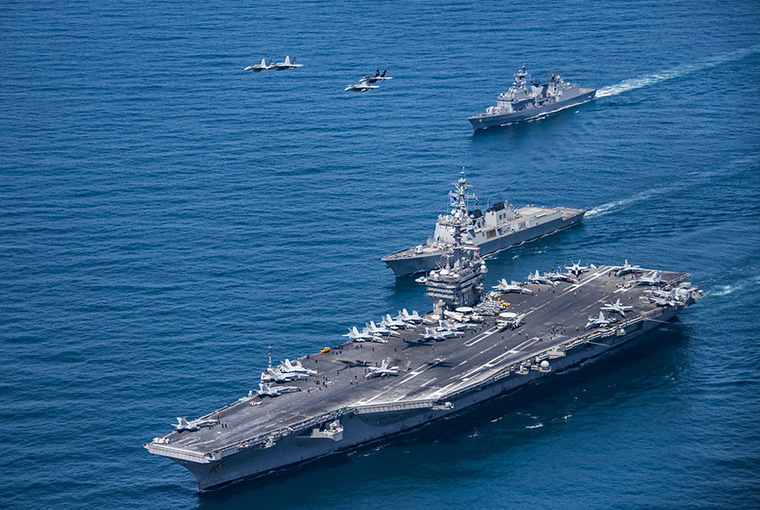Asia-Pacific Navy Planning Process International Course 2021

The fifth Asia-Pacific Navy Planning Process International Course (APNIC) will be held June 14 - 18.
Officers from 15 countries are scheduled to participate: Australia, Bangladesh, Brunei, Chile, India, Republic of Korea, Malaysia, New Zealand, Pakistan, Peru, Philippines, Sri Lanka, Vietnam, the U.S. and Japan.
Instructors from the United States Naval War College and the Japan Maritime Self Defense Force (JMSDF) Command and Staff College will lead international participants in planning processes at the operational and tactical level.
“U.S. and Japanese officers share the values of the international rules-based order. The free and open Indo-Pacific is essential to global peace and prosperity,” said Adm. Samuel Paparo, commander, U.S. Pacific Fleet. “The result of this planning course will be common planning methodologies and a global community of maritime practice leading to seamless coalitions in times of crisis. These partnerships are our asymmetric advantage.”
As stated in a joint invitation letter to participants, the purpose of APNIC is to “provide a forum to study and discuss operational planning processes leading to better understanding and cooperation, thereby enhancing the effectiveness in the execution of a range of maritime operations.”
The officers will be studying command and control structures, basic Navy Planning Process, and conducting practical group work regarding humanitarian assistance/disaster relief.
The course, which was cancelled during the pandemic in 2020, will be held online due to COVID-19 precautions, according to Capt. Asano Kiyoshi, a lead instructor in Maritime Operations Studies at JMSDF Command and Staff College.
“APNIC will improve participants’ skill and knowledge regarding the Navy Planning Process, promote mutual understanding, and facilitate a quick response in the event of a large-scale natural disaster in this region,” said Asano. “I hope this meaningful program will continue for a long time to come, and participants understand each other and enjoy cross-cultural communication.”
“The first four years, APNIC provided a great opportunity for officers of many Indo-Pacific navies to work together in person and build relationships that will enhance cooperation in future maritime operations,” said Jonathan Will, Director of the College of Maritime Operational Warfare Assist and Assess Team at the Naval War College. “We anticipate great results for the future of maritime operations in the Indo-Pacific.”
